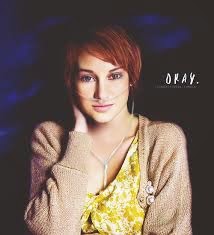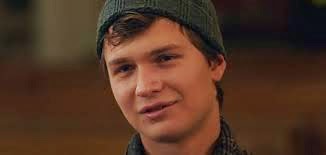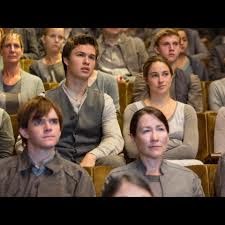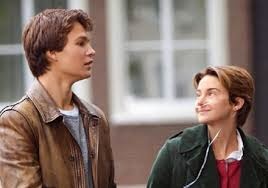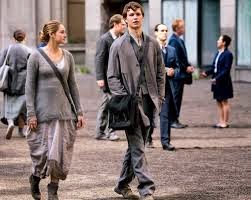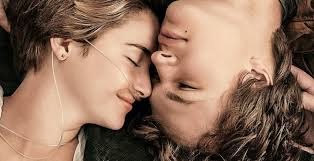In the movie, however, we have three external things to help us interpret Tris: her dialogue, the events occurring around her, and Shailene Woodly’s portrayal of Tris’ actions. We’ve already covered how the dialogue improved. Woodly kept Tris consistent by maintaining some timid mannerisms alongside growing determination and confidence. Beyond that, we see clearly what’s at stake in every scene, but don’t have Tris’ inner thoughts constantly jumping to other things to confuse us. All in all, the movement of her character development feels clean and smooth.
But overall, this was a great movie. The writing was good. The visuals were nice. The music was right on track. And we got some great performances by actors Theo James and Shailene Woodly. On a side note, Woodly will also be playing the lead in another teen book-to-movie, Fault in Our Stars, due out in June.
Uh…hold on…
